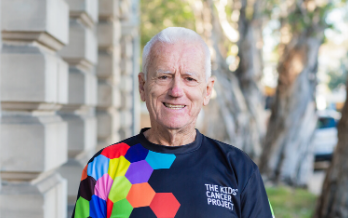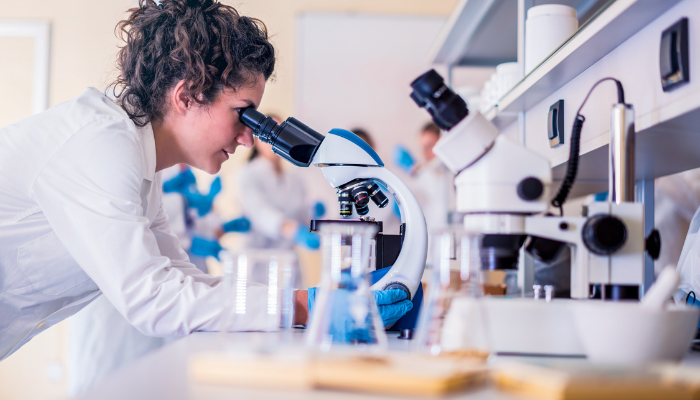Col Reynolds Fellow, Marion Mateos

Recipient: Dr Marion Mateos
Institute: Children’s Cancer Institute
Funding: $276,000.00
Dr Marion Mateos (MBBS BSc (Med) FRACP PhD) is an early career clinician-researcher and paediatric oncologist, with appointments at Sydney Children’s Hospital Randwick and the University of New South Wales. Dr Mateos’ clinical practice focuses on the treatment of childhood brain tumours and leukaemia. Her research focuses on improving outcomes in childhood cancer, clinical trial development for high-risk childhood cancer, biomarker development and application of liquid biopsy in collaboration with colleagues at Children’s Cancer Institute, as well as research aimed at reducing treatment-related toxicities.
Motivation
I became interested in research during my clinical fellowship in paediatric oncology at Sydney Children’s Hospital Randwick. I could see how much patients have benefited from research over the last few decades and how survival has improved in many cancers as a direct result of dedicated cancer research. I enrolled in a PhD in 2013 and have been committed to childhood cancer research since. It’s exciting and so worthwhile to make discoveries and contribute to improving outcomes for children diagnosed with cancer.
Researching high-risk brain cancer
My project is all about trying to improve treatment and disease monitoring for children diagnosed with high-risk brain cancer. The first part of my project will build upon work that I am currently co-leading, in collaboration with Professor David Ziegler and international colleagues. We are investigating genetic changes that affect all the healthy (non-cancer) cells in the body (germline) and whether children with specific germline mutations may in fact benefit from targeted therapy.
The project’s second part builds upon an existing collaboration with colleagues at the Children’s Cancer Institute and some pilot work that we have conducted together in developing a new technique that we believe can help us find early signs of disease relapse in the spinal fluid of children with high-risk brain cancer. While we need to study many more children to better understand the role of this new technology, we may be able to act earlier in changing treatment and to improve survival for these children. We can also use this information to find out how cancer cells can change during treatment and why some cancers do not respond well to treatment.
Through my role in the ZERO Childhood Cancer Program and in collaboration with Professor Ziegler, I have helped develop a clinical ‘basket’ trial*, which will offer new targeted treatment strategies (arms) to children diagnosed with high-risk cancer. A ‘basket’ trial has many different treatment arms, where the treatment is guided by the genetic change that is found in the tumour.
The trial will allow us to use and refine these new disease-monitoring techniques to better understand the role of spinal fluid monitoring in high-risk brain cancer. I hope that we will be able to use information from my research project in high-risk brain cancer to develop new treatment strategies that could be offered in this basket trial in future.
(*Basket trials, in contrast to traditional studies that enrol patients with the same tumour type, often test a drug that targets a specific molecular alteration, regardless of the underlying primary tumour.)
Researching brain cancer
Brain cancer is the leading disease-related cause of death in children. We urgently need better treatments to improve survival for children diagnosed with brain cancer, especially the more aggressive types such as diffuse midline glioma (DIPG). The average age of a child diagnosed with DIPG is 5-9 years old. Currently, there is no known cure, and children with DIPG will sadly die around 9-12 months from the first diagnosis.
Recent research shows that brain cancer caused by the malfunction of specific DNA repair genes in the whole-body genetic makeup (germline), and not just the tumour itself, may respond to new treatment including immunotherapy. However, germline-directed treatment approaches thus far have been limited in brain cancer.
Furthermore, standard monitoring, including brain scans and spinal fluid examination, may miss early disease recurrence (relapse) in high-risk brain cancer. This is a lost opportunity, as early detection of relapse will allow treatment to be changed at the point of minimal residual disease and thus provide a higher chance for disease eradication, as has been shown for other cancers.
Making a difference
In my role as a Paediatric Oncologist, I treat children with high-risk brain cancer and work closely with their families. It’s heartbreaking when we cannot offer further treatment. I hope to be able to change that in future. Through my research, I aim to identify new therapies for children with high-risk brain cancer. In addition, we will develop techniques to identify early relapse and genetic markers to help us better understand which children will respond best to newer targeted therapies.
The Importance of Research
As there are currently no effective treatment options for many high-risk brain cancers, including diffuse midline glioma, our research is critical. We don’t know much about genetic changes in healthy (non-cancer) tissue (germline) and how that contributes to treatment response in diffuse midline glioma, or indeed, whether we can assign a new treatment based on the germline information.
We also don’t have very sensitive ways to monitor disease response. In a different type of cancer (acute lymphoblastic leukaemia), new methods of sensitive disease monitoring have transformed treatment options allowing paediatric oncologists to give more intensive treatment to children where their cancer is not responding as quickly to treatment. I hope that we can transform the way in which we monitor disease in high-risk brain cancer in children and in turn, identify new and more effective treatment strategies.
Col Reynolds Fellowship
I am very grateful to have been awarded a Col Reynolds Fellowship as a clinician-researcher. It’s an incredible opportunity. Right now, the funding environment is very challenging for an early career clinician-researcher, and I have to apply for funding to support my research work and salary. Fellowship funding from The Kids’ Cancer Project will provide invaluable support enabling the development and growth of my research program in high-risk brain cancer. As a paediatric oncologist, I see the effects of cancer on children and their families every day. I hope to make a valuable contribution to improving survival and quality of life for children with high-risk brain cancer.
Thank you, donors!
I’m incredibly grateful to each and every one of you for your support. Thank you! These funds are vital and will allow me to continue my research into high-risk brain cancer. With your support, I hope to develop better treatments for children who are diagnosed with high-risk brain cancer.
I’m very excited to partner with The Kids’ Cancer Project especially as I was funded early in my research career, by the Royal Australasian College of Physicians and The Kids’ Cancer Project Research Entry Scholarship. The scholarship funded my PhD work from 2013-2016 and helped launch my research career. What a wonderful feeling to be able to join forces again in the fight against childhood cancer!
Find out more about the Col Reynolds Fellowship
With an investment of over $7.6 million, The Kids’ Cancer Project is ensuring that some of the best and brightest young researchers in Australia can further their careers and most importantly, their impact on childhood cancer research.


Read more from past recipients
From a field of outstanding candidates across Australia, The Kids’ Cancer Project has funded the next generation of childhood cancer researchers. Their science-backed research is sure to deliver breakthroughs across a range of areas relating to childhood cancer.

